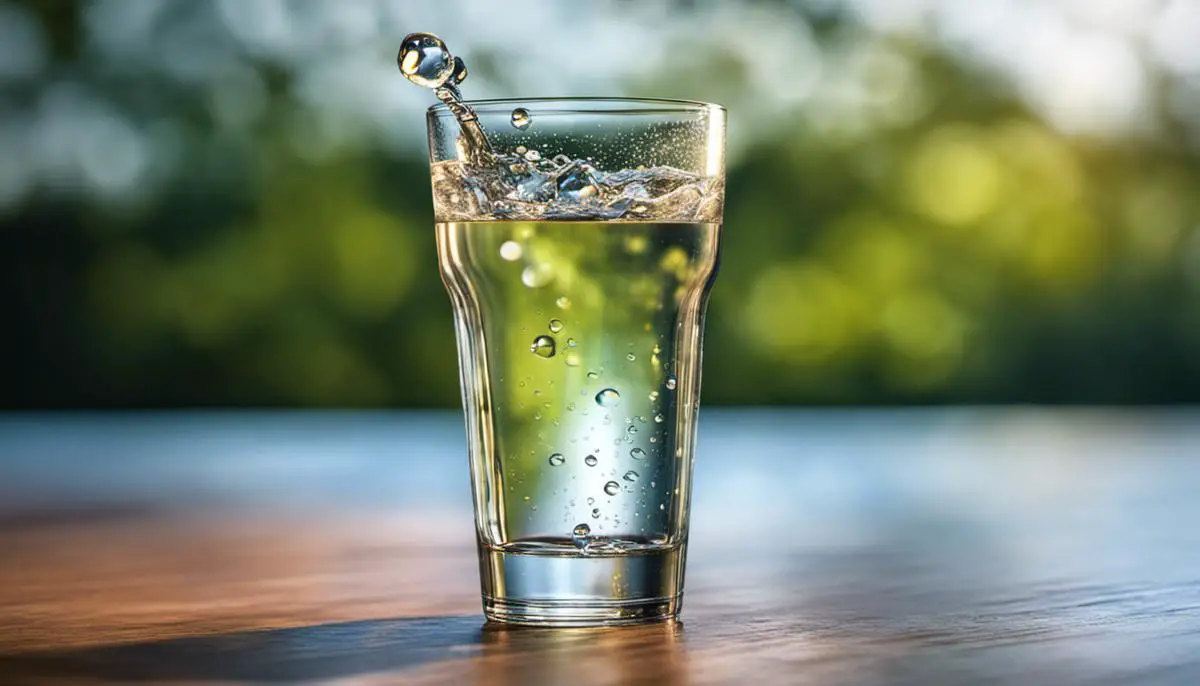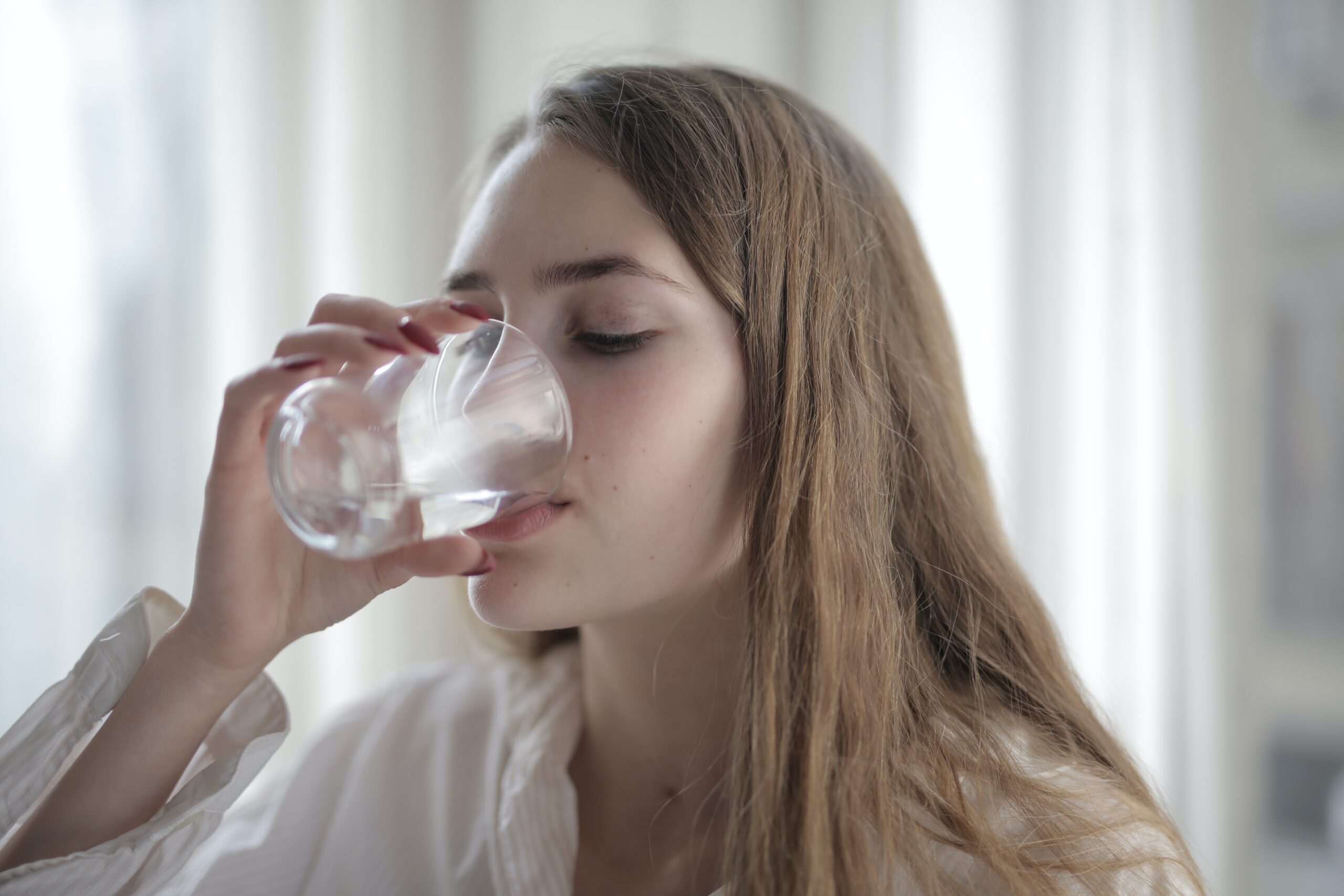In our pursuit of optimal health, one element remains critical yet often overlooked – water. Our bodies, composed of about 60% water, underscore the importance of daily hydration for various physiological functions. From supporting digestion and nutrient absorption to regulating our body’s temperature and maintaining skin health, water plays a pivotal role. Yet, there is no one-size-fits-all approach when it comes to water intake, as several factors like age, activity level, climate, and gender can influence individual needs. In this comprehensive discussion, we delve into the intricacies of hydration, busting common myths, outlining daily intake requirements, benefits of proper hydration, practical tips to manage intake, and addressing common queries about daily water intake.
Understanding Hydration and Its Impact on Health
The Importance of Hydration and Its Role in Body Functions
Daily hydration is vital for maintaining smooth and optimal bodily functions. Every cell, tissue and organ in our body requires water for efficient operation including our brains, hearts, and kidneys. Water aids in digestion, absorption of nutrients, temperature regulation and detoxification. Dehydration, even mild, can impair these functions leading to negative consequences.
Impact of Hydration on Overall Health
Proper hydration goes beyond thirst quenching; it is essential for maintaining a strong immune system, managing weight, and promoting good mental health. Drinking sufficient water helps maintain skin’s elasticity and texture and prevent issues like acne, wrinkles, and aging. It can also decrease risks of urinary tract infections, kidney stones, and constipation. For athletes and those regularly exercising, hydration is central to muscle recovery and overall performance.
Dehydration and its Effects
Dehydration can result from not drinking enough water, excessive physical activity, illness, or high heat exposure. Symptoms include thirst, fatigue, decreased urine output, dry mouth, and skin, headaches, and dizziness. Chronic dehydration can lead to more serious problems such as kidney damage, seizures, and even death in severe cases.
Common Myths about Water Intake
One common myth is the “8×8 rule,” suggesting we need eight 8-ounce glasses of water per day. There is no scientific evidence supporting this, with water requirements varying greatly based on age, health status, physical activity, and climatic conditions. Another myth is that caffeinated drinks like tea and coffee cause dehydration. While caffeine has diuretic properties, the amount of water in these beverages generally offsets the fluid loss.
Daily Water Intake for Optimal Health
To remain well hydrated, men should aim for about 3.7 liters (13 cups) and women should aim for 2.7 liters (9 cups) of total water intake per day from all beverages and foods, according to the U.S. National Academies of Sciences, Engineering, and Medicine. People living in hot climates, physically active individuals, or those with certain health conditions may require more. It’s also important to remember that other beverages like milk and juice and high water content foods like fruits and vegetables also contribute to this daily total.
Hydration Monitoring: A Simple Method
One of the most straightforward methods to track your hydration level is to observe your urine color. Light-colored urine is an indicator of proper hydration, while darker hues, yellow or amber, signify dehydration. Recognizing your body’s unique signals and needs is a fundamental aspect of managing hydration effectively.

Establishing Water Intake Requirements
The Significance of Daily Water Consumption: The Role of Hydration
Comprising around 60% of the human body, water is vital for every body system to function optimally. It plays a pivotal role in sustaining body temperature, lubricating joints, staving off infections, ferrying nutrients to cells, and maintaining the proper functioning of organs. Optimal hydration can significantly enhance the quality of sleep, cognitive abilities, and mood.
Factors Affecting Individual Hydration Needs
Hydration needs can vary from person to person due to a number of factors such as age, gender, activity level, and climate. For instance, men often need more water than women due to their larger body composition. Physiologically active individuals or those living in warm climates also generally require more hydration as they may lose more fluid through sweat. Elderly people, on the other hand, may need less water as their bodies might have reduced capacity to retain water.
Science-Backed Guidelines for Water Intake
There is no one-size-fits-all approach when it comes to hydration as everyone’s needs are unique. However, a common recommendation is the “8×8 rule,” which suggests consuming eight 8-ounce glasses of water a day, equivalent to about 2 liters, or half a gallon.
Medical and Health Organizations’ Recommendations
Health organizations, including the National Academies of Sciences, Engineering, and Medicine, provide some general guidelines for daily fluid intake. Their recommendations suggest that women should aim for a total of about 2.7 liters or 91 ounces of fluid per day and men about 3.7 liters or 125 ounces per day. It’s important to clarify that these recommendations refer to total fluid intake per day, not just water, and include fluids from all beverages and foods.
Exercise and Hydration
When it comes to exercise or any substantial physical activity, it’s crucial to drink enough water before, during, and after. The American Council on Exercise suggests drinking 17-20 ounces of water 2-3 hours before exercise, 8 ounces during warm-up (or 20-30 minutes before exercise), 7-10 ounces every 10-20 minutes during exercise, and 8 ounces within 30 minutes after exercise.
Climate and Hydration
Living in a hot climate or at high altitude may increase water needs as well. This is due to increased sweat, as your body works to cool itself down, and increased respiration rates, respectively. Therefore, higher daily water intake may be required to stay hydrated in such areas.
Hydration and Health
Sufficient hydration is not just crucial for physical health but also for cognitive function. Dehydration can affect brain function, memory, and mood. Furthermore, chronic under-hydration could lead to health complications such as urinary tract infections and kidney stones.
Hydration is a critical part of overall health and well-being; hence, it is important to maintain optimal hydration levels. However, it’s essential to keep a balance as excessive water intake can lead to potential complications such as water toxicity, or water poisoning in severe cases. Always pay close attention to your body’s thirst signals, but remember that increased physical activities, sickness, or elevated temperatures can require you to drink more water than the average recommendation.

Benefits of Optimal Daily Water Intake
The Importance and Advantages of Proper Daily Water Intake
Ensuring adequate hydration is fundamental for numerous bodily functions, including digestion, nutrient distribution, and body temperature regulation. The human body is predominantly made up of water – about 60% of it, to be exact. Water is essential in preserving the functionality of every single cell and organ system in our bodies, from our brain and heart to our skin and kidneys.
Better Skin Health
Water intake greatly impacts skin health. Adequate hydration helps keep the skin moisturized, prevents dryness and flakiness, and contributes to a more radiant and youthful appearance. Lack of sufficient water can result in dull skin, amplified wrinkles and pores, and potentially exacerbate instances of acne and other skin disorders.
Improved Digestion and Weight Management
Water plays a critical role in proper digestion as it assists in breaking down food and aids in nutrient absorption. It also helps ensure smooth bowel movements and prevents constipation. When it comes to weight management, regular water intake can assist in controlling calories. Water doesn’t carry calories and can help you feel fuller, thus reducing the tendency to overeat.
Enhanced Mental Facility and Vitality Levels
Dehydration can result in fatigue, mood swings, headaches, and impaired cognitive functioning, thus impact focus, memory, and other brain functions. Regular and optimal water intake supports better cognitive performance and overall mental well-being. It also boosts energy levels and reduces fatigue, helping maintain high vitality levels throughout the day.
Optimal Kidney and Liver Function
The kidneys and liver both perform critical detoxification roles in the body. These organs require adequate water to function well. Water aids these organs in filtering waste products and helps in flushing out toxins.
Heart Health Improvement
Regular optimal hydration is vital for maintaining heart health and cardiovascular performance. Dehydration can put extra strain on the heart as it tries to pump blood and maintain circulation, increasing the risk of heart-related ailments.
Keeping an optimum daily water intake is not something that should take a backseat in our overall health and wellness agenda. From maintaining bodily functions to promoting vitality, water plays a key role. It’s important to fulfill your daily water intake requirements, which may vary based on certain factors like your age, gender, weight, physical activity, and health condition.

Top Tips for Managing Daily Water Intake
Stay Hydrated with the Use of a Hydration Tracker
One of the practical ways to maintain this is by utilizing a hydration tracker. Relying on this effective tool will allow you to keep track of how much water you are consuming throughout the day. Be it a mobile app, a specially designed water bottle equipped with a counter, or a traditional diary to manually record your intake – having something that helps you measure your consumption will ensure you are staying properly hydrated and make adjustments as necessary.
Adding Flavor to Your Water: A Solution for Those Who Dislike Plain Water
For some, the taste of plain water can be off-putting and bland. This can deter them from consuming the necessary amount of water their body needs to ensure optimal hydration. However, there’s a simple solution to this: flavored water. By adding fruits, herbs, and spices to your water, you can enhance its taste while still reaping the benefits of hydration. Suggestions include lemon and lime slices, cucumber and mint, or berries and citrus fruits. Always ensure that what you add is fresh and free from preservatives or added sugars for the most beneficial impact on your health.
Signs of Adequate Hydration: What to Look Out For
In addition to tracking your water intake, it’s also important to pay attention to your body’s signals to ensure you’re sufficiently hydrated. One of the most common signs of proper hydration is the color of your urine. You should aim for a light, straw-like color. If your urine is darker, this could be an indication that you need to drink more water.
Furthermore, often feeling thirsty, experiencing dry mouth, having dry skin, or feeling light-headed could be signs of dehydration. Fatigue and decreased cognitive function have also been linked to lack of hydration. Conversely, overhydration could lead to frequent and small urination, nausea and vomiting, or in severe cases, seizures. By striking the right balance, you’d be ensuring optimal hydration and maximizing your overall health.
Regular Water Breaks: A Timely Approach to Hydration
Incorporating regular water breaks into your daily routine is another effective way to ensure adequate hydration. This could be setting a reminder on your phone or computer to drink water every hour, or associating water intake with regular daily activities, like before and after meals, on waking up and going to bed, or during TV commercial breaks.
Water Rich Foods: An Alternative Approach to Boost Hydration
Drinking water is not the only way to stay hydrated. Consuming water-rich foods can significantly contribute to your daily water intake. Fruits and vegetables like cucumbers, watermelons, oranges, apples, and strawberries consist of more than 80% water. In addition to their water content, these foods also provide essential vitamins and nutrients, leading to additional health benefits.
Use these tips to develop a hydration routine that fits your unique needs. By maintaining a proper balance of water in your body, you’ll promote optimal health, increase your energy levels, enhance your cognitive function, and contribute meaningfully to your general well-being.

Addressing Common Questions about Daily Water Intake
The Significance of Hydrating at the Right Time
Regular hydration plays an essential role in sustaining good health, but it’s not solely about the amount of water you consume daily. The timing of when you drink it holds equal importance. Starting your day with a glass of water awakens your metabolism and assists your body in recovering from the overnight fasting period. Taking in water before meals can also support digestion and curb overeating, as it fosters a feeling of fullness. Consistently staying hydrated throughout the day ensures your body’s systems operate at peak performance. However, try to avoid drinking a large quantity close to bedtime, as it may disrupt your sleep cycle by leading to middle-of-the-night bathroom visits.
Adverse Effects of Excessive Water Consumption
Drinking too much water can lead to a condition known as hyponatremia or water intoxication. It occurs when you drink so much water that your kidneys can’t excrete the excess, leading to a dangerous drop in sodium levels in the blood. Symptoms of water intoxication can range from nausea, headaches, and confusion to seizures, and in extreme cases, it can even be life-threatening. However, it’s worth noting that this condition is rare and usually only concerns athletes who consume large amounts during endurance events, or individuals with certain health conditions.
Factors Influencing Water Intake Needs
Individual water intake requirements can vary widely, influenced by factors like body weight, physical activity levels, climate, and overall health conditions. People with specific health issues like kidney stones or urinary tract infections may need to drink extra water. Similarly, those living in hot climates or engaging in intense physical activities may require more water to stay adequately hydrated. It’s essential to consult a healthcare professional to understand your personalized water intake needs.
Role of Other Beverages in Hydration
Water is undoubtedly the best source of hydration, but other beverages can also contribute to your daily fluid intake. Most non-alcoholic drinks like milk, tea, and coffee can contribute to hydration. Fruit juices and sports drinks can also help, particularly during intense exercise or hot weather, as they can replace water and electrolytes lost through sweat. However, they often contain sugars and calories. Alcoholic beverages, on the other hand, can cause dehydration and should not be depended upon for fluid intake.

Hydration is a health facet that deserves thoughtful attention and understanding. Recognizing its integral role in preserving and promoting health is the first step towards establishing a reasonable approach to daily water intake. By breaking down science-backed guidelines, highlighting the plethora of benefits, and providing actionable tips, we aim to equip you with the knowledge to make informed decisions about your hydration habits. Remember, while water is vital, it is only one piece of the broad health puzzle. Ultimately, achieving optimal health involves a balanced diet, regular physical activity, sufficient sleep, and sound mind. So, take a sip of water, and embark on your comprehensive health journey!
